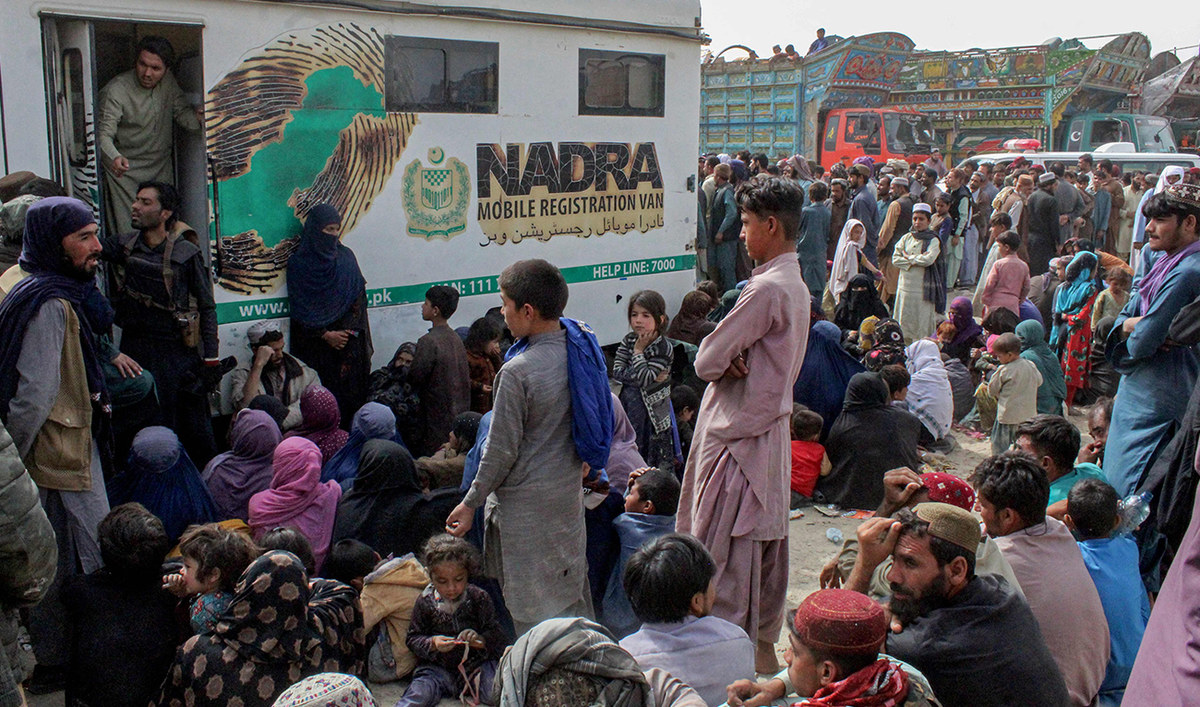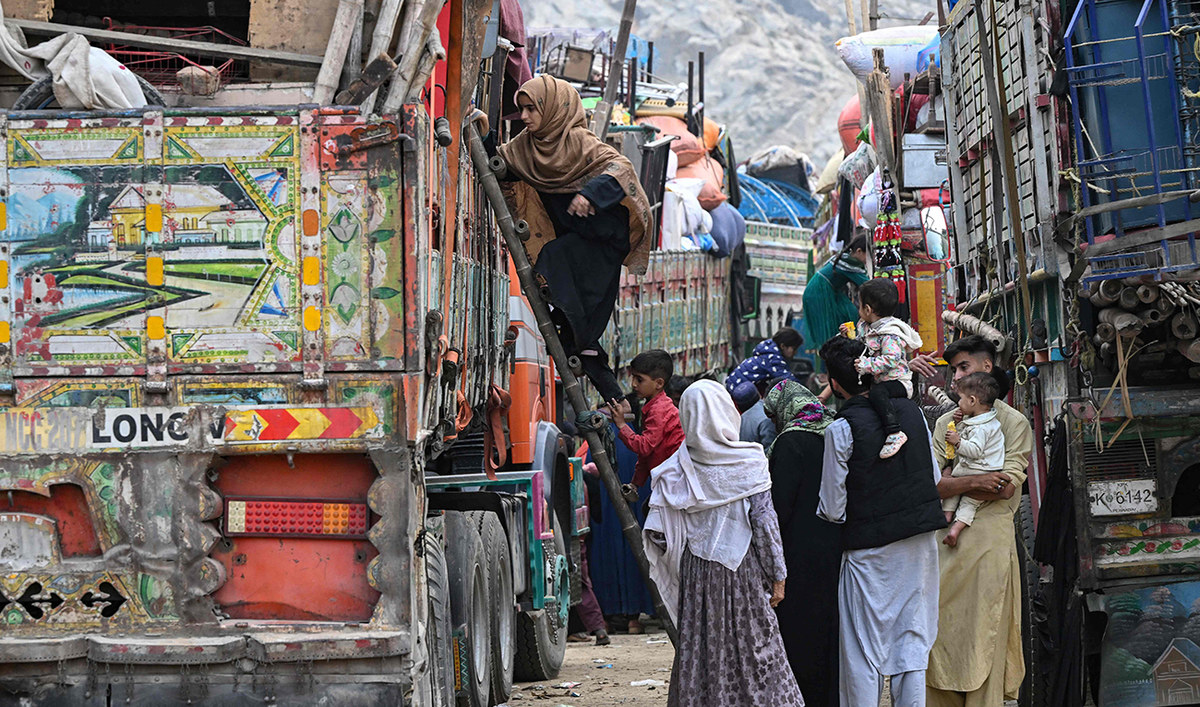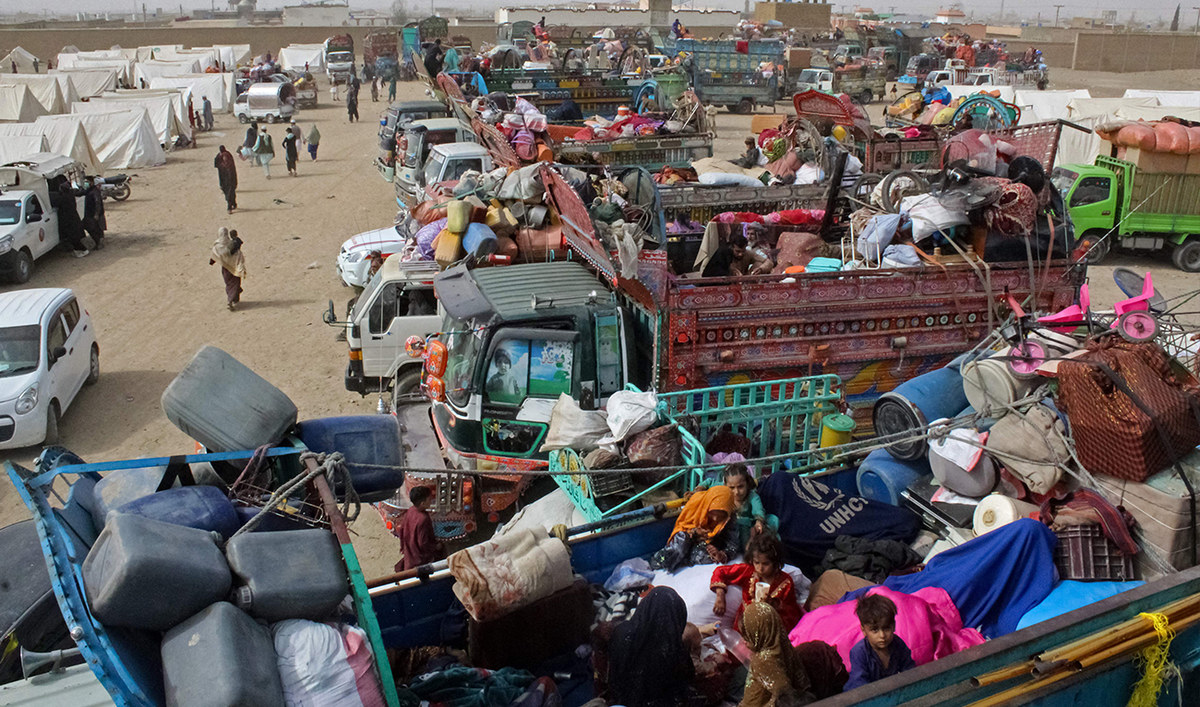TORKHAM, Afghanistan: Diapers litter the ground at an Afghan border crossing where thousands of Afghan families have waited for days after being forced to leave Pakistan, with frustration mounting as resources dwindle.
Islamabad issued an ultimatum in early October to 1.7 million Afghans it says were living illegally in Pakistan: leave by November 1 or face arrest and expulsion.
The government said it was to protect Pakistan’s “welfare and security” after a sharp rise in attacks it blames on militants operating from Afghanistan.
The order spurred thousands of Afghans to hurriedly pack what they could and rush to the frontier, not willing to risk police action or deportation, even if it meant abandoning their whole lives or the possibility of giving birth along the way.
“We left in a panic,” said Shaista, who came from Peshawar city, close to the border.
“We packed our luggage in the middle of the night and left. It’s better to come by our own consent than face deportation with insulting treatment.”

Afghan refugees gather in front of the National Database and Registration Authority (NADRA) vans for biometric verification before their departure to Afghanistan, at a holding centre near Pakistan-Afghanistan border in Chaman on November 1, 2023. (AFP)
But they have landed in a dire situation after two days waiting on the Pakistani side of the border and another three waiting to be registered in Afghanistan.
“We left our belongings behind. Now we have no shelter here,” she told AFP.
The Taliban authorities are struggling to register the sudden wave of returnees.
UN agencies have set up services for those arriving but have strained under the surge in demand.
Numbers are mounting daily — at least 29,000 people crossed into Afghanistan on Tuesday alone — sparking an “emergency situation” at the Torkham crossing between the Afghan and Pakistani capitals, a border official said.
The Taliban government has said mobile toilets, water tanks and other supplies had been deployed to the border but drinking water was scarce on Wednesday, recent returnees told AFP.

Afghan refugees climb a truck as they prepare to depart for Afghanistan, at a holding centre in Landi Kotal on November 1, 2023. (AFP)
“There is no water,” Shaista said. “We are begging people for water and can hardly get even one bottle.”
It’s not just water, said Mohammad Ayaz, 24, who crossed the border with 10 family members.
“The problems we are facing are related to women, children, food, water, shelter and medical services. We have no medicines here to treat our children,” he told AFP.
Along with that desperation, uncertainty about how long they will have to wait for registration and what comes next has increased the frustration. Many of them have nowhere to go, having lived years, if not their whole lives, in Pakistan.
“There are fights, people are losing patience. I am young, I will somehow bear this situation but how can a child bear all this?” said Ayaz.
He and others called for the government to speed up the registration process and provide support at Torkham and beyond.
“It’s been two days we are stuck here,” said Gulana, who is in her 60s.
“My son was detained by the police in Pakistan, and we escaped in a panic. Now we don’t know what to do here, nobody is guiding us or telling us what to do next.”

Afghan refugees arrive at a holding centre before their departure to Afghanistan near Pakistan-Afghanistan border in Chaman on November 1, 2023. (AFP)

















